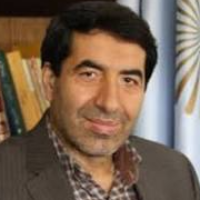The study of the relationship between handedness and academic achievement in secondary school students
Author(s):
Abstract:
The present research is aimed to study the relationship between handedness and academic achievement in secondary students. For this purpose 901 students (441 boys, 460 girls) in 1 to 3 grades of ordinary secondary schools with age average 13 years and 5 months (minimum11 and maximum 20 years) and standard deviation 1 year and 2 months were chosen by cluster sampling method from schools of educational district five of Tehran city. Handedness questionnaire of Chapman and Chapman (1987) were completed by all subjects. Scores of students in written examinations of mathematics, religious education, geography, social science, Persian dictation, experimental sciences, English dictation, history, Arabic and vocational and technical education were gathered for educational achievement criteria. Data analysis revealed that the prevalence of non right-handedness (leftis 16 percent in both sexes. Data analysis by t-test also indicated that academic achievement of right-handers and non-right handers is not significantly different. Although the mean score of non-right handers in history was significantly more than right-handers (α=0.03). So handedness by itself is not related to educational achievement in secondary school students and the parents and the personnel of school need not worry about left or right- handedness in their children.
Keywords:
Language:
Persian
Published:
Journal of School Psychology, Volume:1 Issue: 1, 2012
Page:
7
https://magiran.com/p1013342
سامانه نویسندگان
مقالات دیگری از این نویسنده (گان)
-
Validation and reliability The Protective Factors for Resilience Scale In a sample of Iranian working population: Technical and Vocational Education Organization
Pourandokht Niroumand*, Mahnaz Ali Akbari Dehkordi, Nazanin Abed,
Journal of Skill Training, -
Prediction of child's attachment style based on positive and safe parenting style and mediation of mother's secure attachment style in children with ADHD
Maryam Aliakbari, *, Sousan Alizadehrard
Journal of Exceptional Children,


